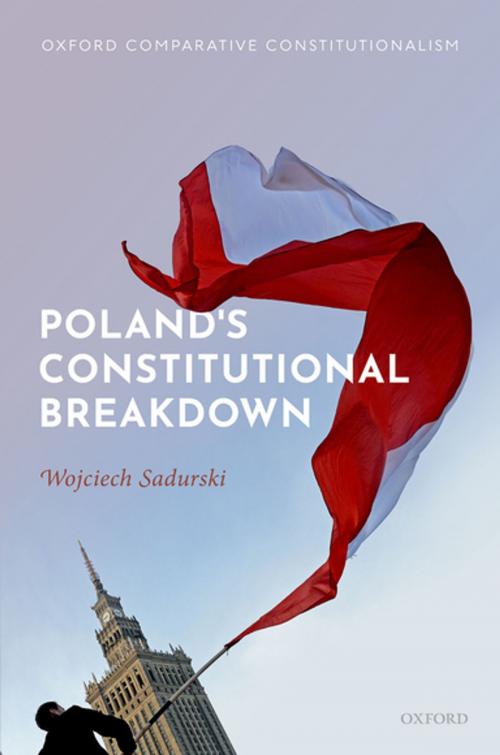Poland's Constitutional Breakdown
Nonfiction, Reference & Language, Law, Constitutional, Social & Cultural Studies, Political Science| Author: | Wojciech Sadurski | ISBN: | 9780192576972 |
| Publisher: | OUP Oxford | Publication: | May 16, 2019 |
| Imprint: | OUP Oxford | Language: | English |
| Author: | Wojciech Sadurski |
| ISBN: | 9780192576972 |
| Publisher: | OUP Oxford |
| Publication: | May 16, 2019 |
| Imprint: | OUP Oxford |
| Language: | English |
Since 2015, Poland's populist Law and Justice Party (PiS) has been dismantling the major checks and balances of the Polish state and subordinating the courts, the civil service, and the media to the will of the executive. Political rights have been radically restricted, and the Party has captured the entire state apparatus. The speed and depth of these antidemocratic movements took many observers by surprise: until now, Poland was widely regarded as an example of a successful transitional democracy. Poland's anti-constitutional breakdown poses three questions that this book sets out to answer: What, exactly, has happened since 2015? Why did it happen? And what are the prospects for a return to liberal democracy? These answers are formulated against a backdrop of current worldwide trends towards populism, authoritarianism, and what is sometimes called 'illiberal democracy'. As this book argues, the Polish variant of 'illiberal democracy' is an oxymoron. By undermining the separation of powers, the PiS concentrates all power in its own hands, rendering any democratic accountability illusory. There is, however, no inevitability in these anti-democratic trends: this book considers a number of possible remedies and sources of hope, including intervention by the European Union.
Since 2015, Poland's populist Law and Justice Party (PiS) has been dismantling the major checks and balances of the Polish state and subordinating the courts, the civil service, and the media to the will of the executive. Political rights have been radically restricted, and the Party has captured the entire state apparatus. The speed and depth of these antidemocratic movements took many observers by surprise: until now, Poland was widely regarded as an example of a successful transitional democracy. Poland's anti-constitutional breakdown poses three questions that this book sets out to answer: What, exactly, has happened since 2015? Why did it happen? And what are the prospects for a return to liberal democracy? These answers are formulated against a backdrop of current worldwide trends towards populism, authoritarianism, and what is sometimes called 'illiberal democracy'. As this book argues, the Polish variant of 'illiberal democracy' is an oxymoron. By undermining the separation of powers, the PiS concentrates all power in its own hands, rendering any democratic accountability illusory. There is, however, no inevitability in these anti-democratic trends: this book considers a number of possible remedies and sources of hope, including intervention by the European Union.















